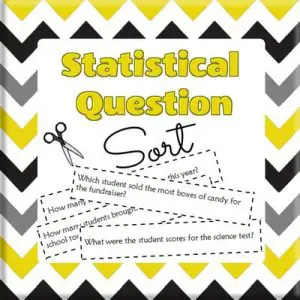What Is A Statistical Question?
In case you never noticed, we keep labeling everything when we are talking about math. Just think about it. Consider the number 1, for example. What can you say about it? The number 1 is a positive number, is a whole number, is an integer, among a lot of other things. And the same happens when you look at a function too. So, it is normal that when you look at questions, that they have their own labels as well. And this is where the question what is a statistical question arises.
Take a look at the best statistics calculators.
So, what is a statistical question?

Simply put, a statistical question is a question that you make that you know, beforehand, that it won’t have one single answer. The truth is that when you ask a statistical question, you should expect to get a wide variety of answers. So, your final answer will depend on the tendency and distribution of the different answers that you got.
In case you need a more practical example to understand the difference between a statistical question and a non-statistical question, just take these questions:
- How tall are you? – this is a non-statistical question since you expect to get only one single answer.
- How tall ate the students in your college? – this is a statistical question.
Another thing that is common in statistical questions is that the answer will depend on the situation. How? Let’s find out.

Here are two simple statistical questions:
#1: How much water do people need to drink to stay hydrated?
While we all know that we need to drink water to remain hydrated, the amount of water that each one of us needs to drink depends on a wide range of factors. From your age to your height, the weight, among so many more. So, our answer to this statistical answer would be that each person needs to drink between 6 and 8 cups of water every day.
#2: How fast do cheetahs usually run?
The answer to this statistical question will also need to be put in a range. After all, even though we all know that cheetahs can run incredibly fast, some are faster than others. Just think about the differences between genres or the age of the cheetahs, for example. So, we can then only say that cheetahs can run about 70 miles per hour.
Discover our correlation coefficient calculator.
So, how can you say, without any doubt, if a question is statistical or non-statistical?
The truth is that in order for a question to be considered as a statistical question, it needs to meet 4 criteria or requirements:
#1: Specific Topic Or Focus:
In order for a question to be considered a statistical question, it needs to contain a specific topic.
#2: Population:

We can simply define population as the specific group of individuals to whom the statistical question is going to be asked.
Learn more about mean median, mode, and range.
#3: Specific Number Of Options:
In order for a question to be considered statistical, it needs to have a specific number of options to choose from – they should be between 5 and 10.
#4: Specific Options:
The last factor that needs to be taken into account for a question to be statistical is that it needs to have numerical results. After all, these can be easily shown in a graph as well as interpreted and identified.